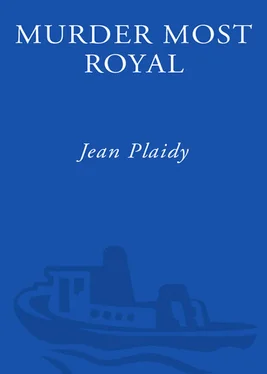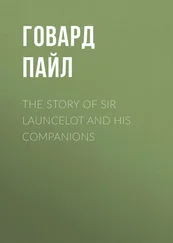Jean Plaidy - Murder Most Royal - The Story of Anne Boleyn and Catherine Howard
Здесь есть возможность читать онлайн «Jean Plaidy - Murder Most Royal - The Story of Anne Boleyn and Catherine Howard» весь текст электронной книги совершенно бесплатно (целиком полную версию без сокращений). В некоторых случаях можно слушать аудио, скачать через торрент в формате fb2 и присутствует краткое содержание. Жанр: Старинная литература, на русском языке. Описание произведения, (предисловие) а так же отзывы посетителей доступны на портале библиотеки ЛибКат.
- Название:Murder Most Royal: The Story of Anne Boleyn and Catherine Howard
- Автор:
- Жанр:
- Год:неизвестен
- ISBN:нет данных
- Рейтинг книги:3 / 5. Голосов: 1
-
Избранное:Добавить в избранное
- Отзывы:
-
Ваша оценка:
- 60
- 1
- 2
- 3
- 4
- 5
Murder Most Royal: The Story of Anne Boleyn and Catherine Howard: краткое содержание, описание и аннотация
Предлагаем к чтению аннотацию, описание, краткое содержание или предисловие (зависит от того, что написал сам автор книги «Murder Most Royal: The Story of Anne Boleyn and Catherine Howard»). Если вы не нашли необходимую информацию о книге — напишите в комментариях, мы постараемся отыскать её.
Murder Most Royal: The Story of Anne Boleyn and Catherine Howard — читать онлайн бесплатно полную книгу (весь текст) целиком
Ниже представлен текст книги, разбитый по страницам. Система сохранения места последней прочитанной страницы, позволяет с удобством читать онлайн бесплатно книгу «Murder Most Royal: The Story of Anne Boleyn and Catherine Howard», без необходимости каждый раз заново искать на чём Вы остановились. Поставьте закладку, и сможете в любой момент перейти на страницу, на которой закончили чтение.
Интервал:
Закладка:
He was trembling with the magnitude of his thoughts, but his moment of clarity was gone. He was an old and peevish man; his leg pained him sorely, and he was very lonely, for he had just killed his wife whose youth and beauty were to have been the warm and glowing fire at which he would have warmed his old body.
He reminded his conscience—better preserved than his body—that Anne had been an adulteress, a traitress, that her death was not murder, only justice.
He scowled at Elizabeth; she was too haughty, too like her mother. He wished he could shut from his mind the sound of screaming, mingling with the chanting voices in the chapel. Catherine was a wanton, a traitress, and adulteress, no less than Anne.
The ship was passing out of sight, and he was no longer thinking of ships, but of women. He pictured one, beautiful and desirable as Anne, demure and obedient as Jane, young and vivacious as Catherine. His hot tongue licked his lips, and he was smiling.
He thought, I must look for a new wife...for the sake of England.
About the Author
JEAN PLAIDY is the pen name of the late English author E. A. Hibbert, who also wrote under the names Philippa Carr and Victoria Holt.
Born in London in 1906, Hibbert began writing in 1947 and eventually published more than two hundred novels under her three pseudonyms. The Jean Plaidy books—about ninety in all—are works of historical fiction about the famous and infamous women of English and European history, from medieval times to the Victorian era. Many were bestsellers in the United States and abroad, although they are currently out of print. At the time of Hibbert’s death in 1993, the Jean Plaidy novels had sold more than fourteen million copies worldwide.
Murder Most Royal
A Novel
Jean Plaidy
A READER’S GROUP GUIDE
About the Book
The wives of Henry VIII are a famously unlucky bunch. From the long-suffering Katharine of Aragon, to the haughty and stunning Anne Boleyn, to the passionate coquette Catherine Howard, each enjoys favor in her turn according to Henry’s needs—and is as quickly discarded when the royal eye roves elsewhere. Henry’s deadly whims require a cadre of supporters whose considerable gifts as politicians are at times almost farcically absorbed by the king’s romantic needs, as the increasingly cruel monarch sacrifices one wife to the next in bloody succession. One of the most fascinating characters in Henry’s saga is Henry himself, whose once-popular image as a robust and jovial prince devolves into something much more sinister during his reign. His worsening physical infirmities are as frustrating to him as are his enemies abroad. Worse still, his wives cannot provide the healthy son who would secure his legacy. Angry at one of the few circumstances that seems entirely out of his control, Henry rails against his enemies, declaring himself submissive to the one thing he can and does meticulously control: his own conscience. Reassured of his own righteousness, Henry is able to wreak havoc on those he loves with a conscience not clean, but ever subservient to its king.
Questions for Discussion
1. Henry’s romance with Anne Boleyn is described as the first time he has truly been in love. Why do you think he was so easily led to condemn her?
2. Catherine Howard’s early romances and her flirtation with Culpepper provided ample grounds for Henry to find fault with her. Were it not for these transgressions, do you think Henry could have remained happily married to her, or would he have been able to find other faults? Should Catherine have admitted her affairs before marrying the king? What do you think would have happened if she had?
3. Who is the wisest of Henry’s wives and why?
4. In planning his divorce from Katharine and pursuit of Anne, Henry mused, “The girl was there, and it pleased him to think of her in his arms, for such reflections were but natural and manly; and how she was to be got into that position was of small consequence, being a purely personal matter, whereas this great question of divorce was surely an affair of state.” This separation of state and personal matters, while contrived, does make some effort to mediate the cruelty he is to inflict on his wife by casting the divorce as a purely political matter. How much does this division and decisive (if deluded) reasoning carry through in Henry’s future marriages? Does this way of thinking conflict with Henry’s later identification of himself with England as one and the same?
5. Plaidy writes of Wolsey, “The Cardinal’s true religion was statecraft.” Discuss Wolsey’s adherence to statecraft as opposed to his allegiance to the church of Rome. How does this “religion” work? What can he hope to achieve through it? What is his endgame?
6. Before she agrees to marry him, Anne tells Henry that she must have the chance to love him as a man as well as a king. She thinks: “Love first, power second. Ah, could I but love this man!” Do you think Anne has real hope that she could grow to love Henry, or is this merely a way of buying time before she is forced to succumb? Do you think she grows to love him? How would you describe their relationship as king and queen?
7. After More’s death, the powers of Europe mourn the execution of a great thinker and leader. The English people mourn a brave martyr. Henry’s reaction is to cast blame on Anne. The author paints More’s execution as the point at which Henry is revealed as a tyrant, a “cold, cruel, implacable, relentless egoist.” Why is this moment so significant?
8. Though Henry is often irrational and irascible, he does have certain predictable impulses and patterns of behavior that are observed and manipulated by his counselors and confidantes. What traits of Henry’s make this type of manipulation possible? What would you consider the most important things for his close counselors to understand about the king if they are to survive their posts?
9. Though Henry’s negative traits grow more menacing through his reign, his powers as statesman also increase as he grows to appreciate his father’s frugalness and shows an awareness of his duty to England as a European power. Do you see any significant signs that Henry is developing as a ruler? What experiences lead him to develop as he does?
10. Discuss the reaction of the “sentimental” and “superstitious” people to the serial dismissal of Henry’s wives. Do their loyalties appear fickle, or do you recognize any constants in their opinions?
11. A theme in the book is the willful delusion of one’s conscience to avoid responsibility. This is the case with Henry throughout his romantic adventures; with the dowager duchess as she allows Catherine Howard to be brought up with little or no discipline or education; with Catherine and Derham as they declare themselves married to enjoy an illicit romance. What drives these characters to behave as they do? Is this mere carelessness, or is there something more at play?
12. Who do you consider to be the heroes of the book? What makes a person heroic or even virtuous in this story?
13. Why does Jane Rochford spy and tattle as she does? In the case of Anne Boleyn, she is driven partly by jealousy and vindictiveness—but why would she continue this dangerous behavior with Catherine and others? At what point do you think Jane goes mad? Is George to blame?
AN EXCERPT FROM
IN THE COURTS OF LOVE

JEAN PLAIDY
Duchess of Aquitaine, Queen of France, Queen of England—the legendary Eleanor of Aquitaine comes to life in Jean Plaidy’s In the Courts of Love , in bookstores May 2006.
Читать дальшеИнтервал:
Закладка:
Похожие книги на «Murder Most Royal: The Story of Anne Boleyn and Catherine Howard»
Представляем Вашему вниманию похожие книги на «Murder Most Royal: The Story of Anne Boleyn and Catherine Howard» списком для выбора. Мы отобрали схожую по названию и смыслу литературу в надежде предоставить читателям больше вариантов отыскать новые, интересные, ещё непрочитанные произведения.
Обсуждение, отзывы о книге «Murder Most Royal: The Story of Anne Boleyn and Catherine Howard» и просто собственные мнения читателей. Оставьте ваши комментарии, напишите, что Вы думаете о произведении, его смысле или главных героях. Укажите что конкретно понравилось, а что нет, и почему Вы так считаете.












